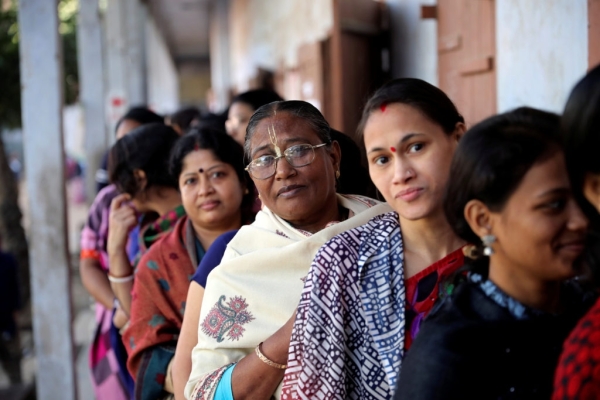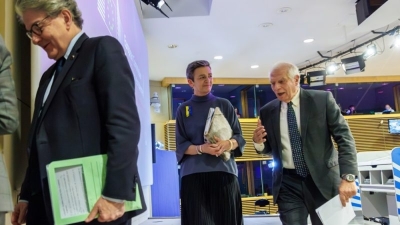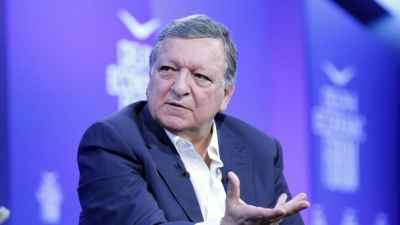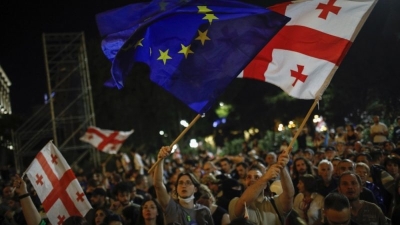As Bangladesh opposition stirs violence, voters urged to respect constitution

Bangladesh goes to the polls either this December or in January. Delivering a free and fair election will add to the country’s rising global respect, as it graduates to middle-income status. The independent Election Monitoring Forum is hard at work trying to protect the democratic process, amid attempts by an opposition party to undermine the election, writes Political Editor Nick Powell in Dhaka.
Bangladesh has made huge progress since the restoration of democracy in 1991 and especially since the government of Sheikh Hasina returned to power in 2009. Her policies have transformed the country’s economy, infrastructure and international reputation but like any democratic politician, she must periodically face the voters and an election is now only months away.
Bangladesh has important safeguards to protect its democracy, notably a constitutionally mandated Election Commission to run the entire electoral process independently of the government. Its work is reinforced by a voluntary body, the Election Monitoring Forum, which ensures that any irregularities are publicised and dealt with.

I’ve had the privilege of addressing the Forum, highlighting how the misdeeds of a few can be seized on by those who would undermine Bangladesh’s high standing in the world. In particular, I stressed the importance of safeguarding the relationship with the European Union, at a time when work is underway to establish more comprehensive and mature cooperation as the country ceases to be considered one of the world’s least developed states.
Other speakers from home and abroad warned of the far-reaching impact of unconstitutional methods, with literally billions of dollars of overseas investment at stake. More fundamentally, it would put the Bangladeshi people’s own achievements at risk.

The Forum’s Director, Professor Dr Abdul Jabbar Khan, said that the people of Bangladesh have struggled for decades to uphold their constitutional rights, since the time of Pakistani rule. As he observed with masterly understatement “when things become unconstitutional, things become complicated”.
AdvertisementThe Forums’s warnings received widespread coverage in Bangladesh’s vibrant print and electronic media. Also gaining attention were the attempts to disrupt and discredit the electoral process by the Bangladesh Nationalist Party, which ran the government before 2009.

Ten police vehicles and six buses in various districts of the capital, Dhaka, and many more vehicles vandalised. In the Shyamoli area, witnesses said a group of people were shouting slogans in favour of the BNP. A large crowd was filmed throwing stones at police officers in one incident and overall 37 police officers and other law enforcement officials were injured.
One BNP leader developed apparent health issues during the protest and was taken to hospital, where the Prime Minister sent him a gift as a goodwill gesture. Another was rescued after one of his own supporters struck him with a stick during the protest; the police ended up giving him lunch.

Such protests are of course not unknown in European democracies, where there is often a less restrained response. However, taken together with the BNP’s recent decision to resign its seats in parliament, they suggest that there might be further attempts to undermine the democratic process. The BNP’s demand for a caretaker government to take over from the ruling Awami League before the election is a constitutional impossibility.
Instead, Bangladesh has some of the strongest constitutional safeguards in the world to protect the conduct of its elections. Once the election is called, roughly 50 days before polling day, control of the police and administration passes to the Election Commission.

The Chief Commissioner, Kazi Habibul Awal, told me that he is confident that the election will be free and fair with a result that is accepted. He had received the assurances he required from the Prime Minister and the responsible ministers “in emphatic language”.
When I spoke to the Home Minister, Asaduzzaman Khan, he was indeed emphatic that the police force will be under the control of the Election Commission. He acknowledged that people can become emotional during an election campaign but was also certain that the police would not overreact to any disturbances. The police have a detailed security plan, covering every constituency.
Grassroots implementation of the election rules will be what ensures a free and fair election. The Election Monitoring Forum stands ready to publicise any complaints and a new law means that anyone who prevents a voter going to the polling station faces a jail sentence of up to seven years.
As an independent body, the Forum has reached out to the BNP, in common with other political parties, offering to arrange a meeting with overseas journalists. The BNP initially accepted the opportunity to put its point of view but then cancelled, becoming the only party to turn down a meeting.
Ideally, of course, all political parties would peacefully participate in the election and abide by the outcome. But the people of Bangladesh neither deserve nor can afford to allow political violence to deflect their country from its democratic course.
Share this article:



